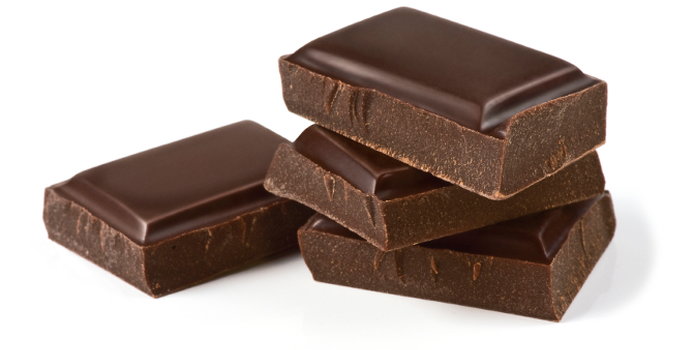You have probably heard about the antioxidants found in dark chocolate. It almost sounds too good to be true, but dark chocolate really does have nutrition that your body needs. Dark chocolate contains no milk (or significantly less milk) than other forms of chocolate such as white chocolate of milk chocolate. The key is to eat dark chocolate in moderation and also to choose dark chocolate with a high cacao content, as this provides the most nutrition. This article discusses five components of the nutrition of dark chocolate.
Flavinoids
Flavinoids are an essential component of the nutrition of dark chocolate. Flavinoids act as B vitamin antioxidants and they are found in many plants, including the cacao plant. Flavinoids can help regulate blood pressure and prevent heart disease. The flavinoids in dark chocolate are thought to reduce low-density lipo-proteins (the "bad" cholesterol). Flavinoids in dark chocolate are even more numerous than the antioxidants found in some berries. Eating dark chocolate in moderation can be a healthy way to promote a healthy immune system. The flavinoids in dark chocolate are also associated with anti-aging effects in the skin and in the brain.
Fat
Dark chocolate is high in fat, which is why many people have a hard time believing that dark chocolate can be part of healthy nutrition. Because the fat in dark chocolate comes primarily from plants, it is much better for your health than other forms of fat, like animal fat. Dark chocolate contains mostly monounsaturated fats like oleic acid. This fat is important for brain function and your immune system. Dark chocolate does contain some saturated fat, with the average amount being around 3 grams per serving; the amount of saturated fat increases if there is any milk in it. For the most nutrition from dark chocolate, look for a dairy-free bar.
Sugar
Sugar is often used in dark chocolate, though the amount is considerably less than that found in milk or white chocolate. Dark chocolate varies in the amount of sugar, from 3.5 grams to 13 grams. Look at the ingredients of dark chocolate for a brand that lists sugar as one of the last ingredients. Also, stay away from dark chocolates that contain unnatural fillings such as caramel or mint crème; this will only increase the sugar content.
Resveratrol
Resveratrol is also found in dark chocolate. Reservaeratrol is a powerful antioxidant that has been demonstrated to protect the body from heart disease. Resveratrol is the same antioxidant that is found in red wine and grapes. Dark chocolate contains approximately 13.1 micrograms of resveratrol per serving. Dark chocolate has the second highest concentration of reservatrol, next to red wine which contains approximately 18 micrograms of resveratrol per serving.
Cacao
Cacao is the main source of benefits in the nutrition of dark chocolate. If you have heard that dark chocolate can be beneficial for depression, it is because of the effect of cacao on the brain. Cacao is a precursor to important neurotransmitters such as dopamine and serotonin; these brain chemicals are associated with feelings of well being and happiness. In addition to the production of neurotransmitters in the brain, cacao promotes their continuous transmission in the same way that many antidepressants function.



